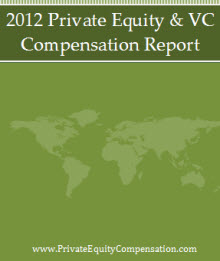The one bright light shining on the venture capital industry this year may turn out to be an oncoming train. The surge in venture capital funds directed at social media has many industry observers concerned that we are looking at the next big bubble, and many are comparing the ballooning valuations of social networking IPOs with those of the dot coms of the 1990s. With $5.2 billion raised in the one-year period ending April 1, VC firms have taken every advantage of the fervor over impending IPOs from Facebook, Twitter, Zynga and Groupon.
With exuberance reminiscent of the dot com era, limited partners are scrambling to line their portfolios with the next big social media offering, and venture funds are all too happy to create the fund opportunities for them to do so. At a time when returns on venture capital portfolios have waned and prospects for quick exits have dimmed across the industry, investors are, once again, turning towards Silicon Valley. Both venture capitalists and investors have suffered through several years of anemic activity raising the fear of missing out on the next big thing.
offering, and venture funds are all too happy to create the fund opportunities for them to do so. At a time when returns on venture capital portfolios have waned and prospects for quick exits have dimmed across the industry, investors are, once again, turning towards Silicon Valley. Both venture capitalists and investors have suffered through several years of anemic activity raising the fear of missing out on the next big thing.
For venture capital firms that have been in decline since the dot com bust, this may very well be their last opportunity to muster a comeback. But then, many observers would argue that the small possibility of success in funding the next Facebook won’t rescue many firms from the ongoing consolidation in the industry. Many of the firms that get sucked into the hype of social media are still trying to recover from their foray into the hype of Internet startups.
An early indication that the frenzy has been overblown leading some analysts to whisper the “bubble” word was the apparent overvaluation of the LinkedIn IPO. After a celebrated coming out party, analysts reconsidered their rosy revenue forecasts and actually downgraded the stock. Still, that hasn’t deterred investor interest in upcoming IPOs. Analysts are encouraged that, unlike the dot coms, the social media ventures are already generating earnings.
The more optimistic analysts don’t view the bubble potential through overvaluation glasses; rather they see it as too much cash chasing too few opportunities which has spawned a lot of copycat deals in order to appease investor demand. Eventually, many of these deals will fizzle which will let some the air out of the bubble, but they think that the more substantial, legitimate deals will keep it from imploding.
In a more colorful analysis, Mark Cuban, a VC investor himself, sees the current condition as a VC bubble that has been inflated through a “ponzie scheme” of new venture-capital investors paying off old investors through massive liquidity rounds. He contends that, as each round of investing attracts new money at higher valuations, the older investors are simply paid with the larger investments made by newer investors, and that, ultimately, someone is left holding the bag. And that’s when the bubble bursts.

